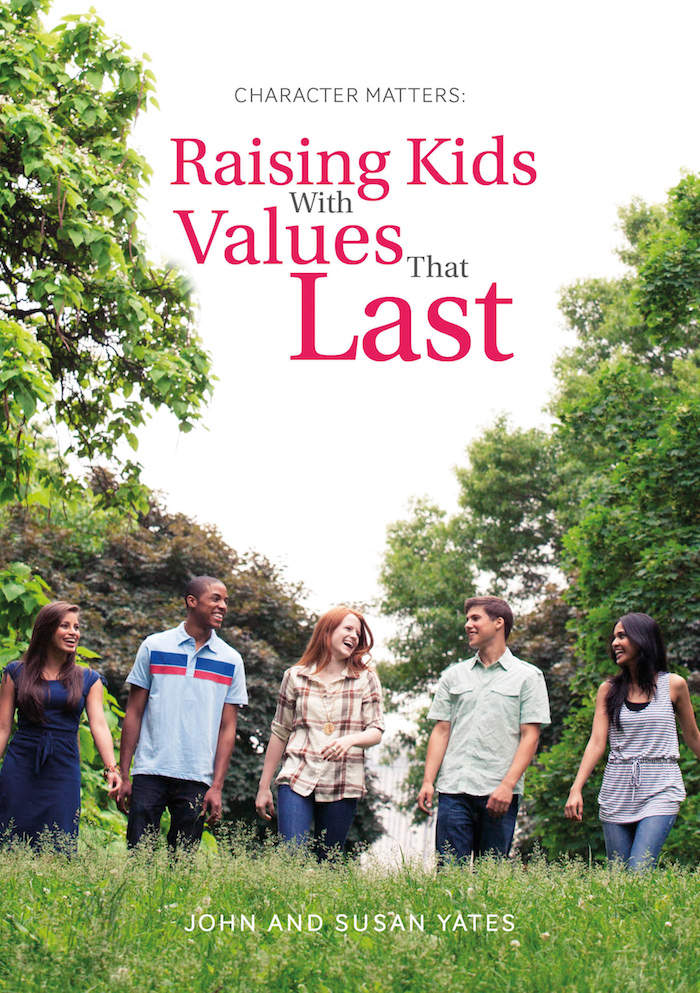“You stupid, big fat ugly Mommy.” “You are so mean. I wish you weren’t my Mom.”
“You are the worst Mom in the world.” 
If you haven’t heard these phrases or ones like these in your home you must not have kids!
Backtalk in a home with children of any age is a common occurrence. But it can leave us feeling like the worst parent in
the world. We wonder, Am I handling this right? My friend’s child doesn’t do this. Her child is respectful. My child mouths off constantly. I am about to lose it!
Here are 6 tips to help face the challenge of sass:
- Remember you are the boss.
Children, especially strong willed ones, will inevitably try to “run the show” and if you get in their way they will let you know it, often with a tongue-lashing. It’s easy to become involved in a power play. But this is dangerous for the child and will perpetuate problems for the parents. Remind your child that you are the boss. You determine what is acceptable and what is not. Avoid a lengthy debate particularly with young children. They can negotiate you to death and sometimes you simply need to end the conversation. They must obey you or there will be consequences, period. - Be very clear about what words are allowed.
“In your face” verbal abuse should never be permitted. Neither should blatant rudeness.
“You are a —-.” is not acceptable. This is a lack of respect and respect is a character issue.
“If you don’t—-, I won’t— or I will–” is not acceptable. These are threats and they put the child in the position of calling the shots. Stomping your foot and saying “no” to a request from a parent is not permitted. This is defiance. So how do we respond when this happens to us? If it is verbal abuse say, “You may not speak to me in that manner and then immediately initiate a punishment. There are many options for punishment. The most important thing to remember is that the punishment must be swift, very unpleasant for the child, and then be over and love given. A consequence that doesn’t cause pain or sadness to a child has no meaning. What you choose will depend upon the age of the child, the infraction and what has meaning to this particular child. It is important to recognize that a child who gets away with verbal abuse will be more likely to become a teenager who verbally abuses his parents and rebels, an adult who abuses his colleagues or employers, and a married person who abuses his or her spouse. - Distinguish between back talk and feelings.
There is a fine line between a child expressing her feelings and verbal abuse and it isn’t always easy to tell the difference. A child who says, “you are so mean, everyone else gets to…” is expressing her feelings if she is not in your face with defiance. A good response to this might be, “I’m sure you feel that way now but one day you’ll understand.” Or employ a little humor and respond, “I probably am the meanest Mom in town,” and burst out laughing. Humor often dissolves tension. Our daughter Libby was punishing her 4-year-old daughter Greyson. Greyson responded, “When I get to “Cousin Camp” this summer I am going to tell your Mommy (that’s me!) how ugly you have been to me!” Libby responded, “You do that!” I am still laughing over this. - Give them words to use.
Give your children words to use to express their feelings in a way that is not defiance. “I feel like….” Is a good substitute for, “You ‘blankety blank.’” But remember when it is clear verbal abuse do not negotiate, take action. It is particularly important to discuss with your teens how to argue without crossing the line to disrespect. Role-playing is helpful. In a conversation demonstrate both a healthy way to make your case and a disrespectful way to engage. Practice and listen to each other. This is a skill they will need to develop for many relationships. You may not come to agreement but the exchange can be done with civility. You are still the parent, the boss. - Practice forgiveness.
The most important ingredient in the home is that of forgiveness. I can’t tell you how many times I have had to go to my husband or to a child and say,” I shouldn’t have said what I did and I need to ask you to forgive me. Will you forgive me? “I can’t remember a single time in which I felt like doing this. I’d much rather have said, “But if you had__ or hadn’t___.” We go to one another out of obedience not feelings. Feelings take time to heal. Genuine healing will be difficult apart from the asking and granting of forgiveness. Saying “I’m sorry” isn’t enough unless it is an accident- like spilled milk, or a broken dish. When we intentionally wound one another we must ask forgiveness. God willing, we are raising future husbands and wives and they are going to need to know how to practice forgiveness in their future homes. It will help them if they see us doing it now. - Remember it’s never too late to do what is right.
If you realize that you have been letting your kids get away with verbal abuse you can still do a course correction. Agree as a couple what your new policies will be. Write them down. Mom and Dad must be on the same page or your child will play you against each other. You have to cover each other’s back. One Dad upon witnessing his child verbally abusing his wife said, “You may not speak to the woman I love in that manner.”
Call the kids together at a time-not in the midst of conflict- and clearly explain the new policy. Include what is and is not acceptable and what the consequences will be. It is likely to take at least 3 times of enforcement when you change course before they believe you really mean what you say. Consistency and firmness are crucial. One of the things that is so hard for parents is that we feel like we do this over and over and don’t make any progress. Our expectations are unrealistic. This kind of training takes years. Just keep at it. You are getting through even if you don’t feel like it right now. Our child’s security comes from knowing he or she is not the boss. We are. It helps to ask them with humor, “Who is the boss?” Who loves you the most in all the world?”
“I do!”

 I have a gift for you! Camp at Home includes 100 things for you to do with your kids of different ages, from toddlers to teens. Join my email list now to get Camp at Home for FREE!
I have a gift for you! Camp at Home includes 100 things for you to do with your kids of different ages, from toddlers to teens. Join my email list now to get Camp at Home for FREE!

Susan, thank you. I liked your suggestion about role playing with a teen to help them see the respectful way to argue.
This would work with adult children trying to force an issue also. Thank you so much.
So true about them being little negotiators! I was not expecting that from my young kids!
This is terrific! I am forwarding it to our daughter….mom to a determined little 22 month old (darling!) boy. 🙂
OH Geary,
You make me laugh!!!!
Thanks for writing!
Love, Susan
Oh my gosh!!!!! Were you at my house this morning? Thank you for sharing practical tips.
OH Geary,
You make me laugh!!!!
Thanks for writing!
Love, Susan